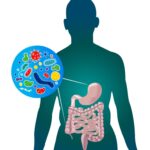Redefining Alzheimer’s Management: How Time-Restricted Feeding Aligns Body Clocks and Enhances Brain Health
The intricate dance of our biological rhythms is more profound than we realize, especially in the realm of Alzheimer’s Disease (AD). In a recent exploration into this realm, researchers have discovered a pivotal connection between time-restricted feeding (TRF) and significant improvements in the symptoms of AD. This study, a paradigm shift in our understanding, was published in the journal Cell Metabolism.
TRF, a form of intermittent fasting, confines eating to a specific time window without reducing overall calorie intake. In this study, scientists focused on mice genetically predisposed to AD. By limiting their food access to just six hours a day, they observed not just an improvement in the general well-being of these mice, but also a remarkable enhancement in their cognitive functions.
This breakthrough is rooted in the understanding that our body’s internal clock, or the circadian rhythm, is a critical factor in our overall health. It’s well-documented that a significant majority of AD patients experience a disruption in their circadian rhythms, often reflected in their irregular sleep patterns. The study’s findings suggest that aligning our eating patterns with our internal clock could be a key in managing, if not reversing, some of the symptoms associated with AD.
The implications of these findings are profound. TRF showed a reduction in amyloid plaques, notorious for their role in AD, and an overall decrease in neuroinflammation. Essentially, by altering when the mice ate, researchers could manipulate the disease’s progression. This not only highlights the potential of TRF as a therapeutic strategy but also underscores the significant role our lifestyle choices play in the management of complex diseases like AD.
But the study goes beyond just the physical manifestations of AD. It delves into the genetic level, showing how TRF can influence gene expression related to the disease. It’s a reminder of how interconnected our eating habits are with our genetic makeup and overall brain health.
In a broader sense, this study is a testament to the power of circadian rhythms in governing our health. It sheds light on a simple, yet potentially effective, non-pharmacological approach to a disease that has long baffled scientists. By aligning our eating patterns with our body’s natural rhythms, we could unlock new avenues in the fight against not just AD, but potentially other neurodegenerative diseases as well.
In conclusion, this pioneering research offers a glimmer of hope in the ongoing battle against Alzheimer’s Disease. It reinforces the idea that sometimes, the answers to complex health issues can be found in the simplicity of our daily routines – in this case, the timing of our meals. As we continue to unravel the mysteries of the human body, it becomes increasingly clear that the rhythm of life, quite literally, holds the key to our well-being.
References:
Whittaker DS, et al. Circadian modulation by time-restricted feeding rescues brain pathology and improves memory in mouse models of Alzheimer’s disease. Cell Metab. 2023;35(10):1704-1721.e6.
Musiek, E., Xiong, D. & Holtzman, D. Sleep, circadian rhythms, and the pathogenesis of Alzheimer Disease. Exp Mol Med 47, e148 (2015). https://doi.org/10.1038/emm.2014.121
Recent Blog Posts
-
 05 Apr 2024Prostate Cancer Early Detection: Addressing the Global Surge with EpiMedTech's Innovative Response
05 Apr 2024Prostate Cancer Early Detection: Addressing the Global Surge with EpiMedTech's Innovative Response -
 23 Mar 2024The Transformative Journey of Pregnancy: A Deeper Look into Maternal Biological Aging
23 Mar 2024The Transformative Journey of Pregnancy: A Deeper Look into Maternal Biological Aging -
 11 Mar 2024Unlocking the Connection Between the Gut Microbiome, Muscle Function, and Cognition in the Elderly: Insights from the PROMOTe Trial
11 Mar 2024Unlocking the Connection Between the Gut Microbiome, Muscle Function, and Cognition in the Elderly: Insights from the PROMOTe Trial -
 02 Mar 2024Turning Back Time with Your Fork: The Fasting-Mimicking Diet Unveiled
02 Mar 2024Turning Back Time with Your Fork: The Fasting-Mimicking Diet Unveiled -
 14 Feb 2024Understanding the Secrets of Bat Longevity: A Glimpse into DNA Methylation
14 Feb 2024Understanding the Secrets of Bat Longevity: A Glimpse into DNA Methylation -
 29 Dec 2023Redefining Alzheimer's Management: How Time-Restricted Feeding Aligns Body Clocks and Enhances Brain Health
29 Dec 2023Redefining Alzheimer's Management: How Time-Restricted Feeding Aligns Body Clocks and Enhances Brain Health -
 26 Dec 2023Unlocking the Mystery of Cervical Cancer: The Vital Role of Folate
26 Dec 2023Unlocking the Mystery of Cervical Cancer: The Vital Role of Folate -
 26 Nov 2023Unlocking the Secrets of Age Reversal: How Cutting Edge Research is Paving the Way
26 Nov 2023Unlocking the Secrets of Age Reversal: How Cutting Edge Research is Paving the Way




